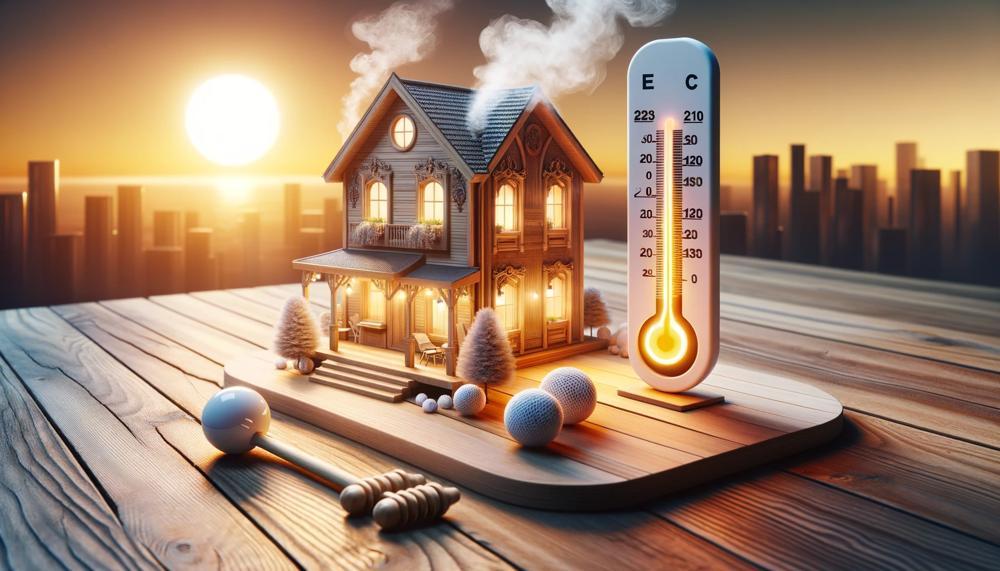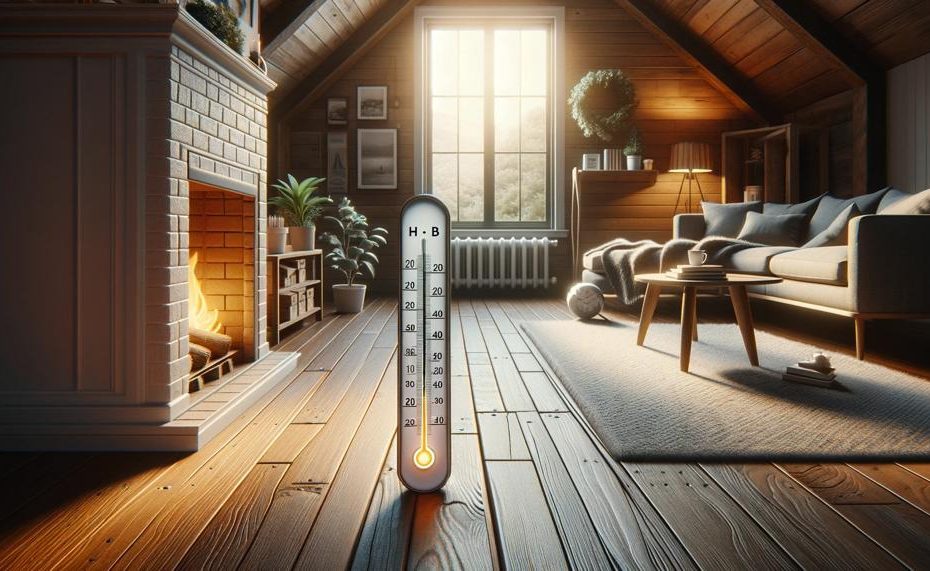Today, we’re tackling a topic that not only adds aesthetic appeal to your space but also has a significant impact on your home’s temperature – hardwood floors. Whether you’re drawn to their timeless charm or simply love the cozy feel they bring, there’s no denying that hardwood floors are a top choice among homeowners.
So, do hardwood floors make your house colder?
In fact, hardwood flooring may help keep your house warm. Natural insulators like hardwood absorb heat and let it escape. Additionally, it may lessen temperature changes and retain heat longer than carpet due to its increased thermal mass. This may result in utility cost savings. However, due to their greater heat conductivity than carpets, hardwood floors may seem cooler to the touch. This indicates that they quickly remove heat from your skin.
So, grab a cup of coffee, get comfortable, and let’s dive into this hot topic.
Contents
Why do Hardwood Floors Make your House Colder
When it comes to flooring options, hardwood floors are a top choice for many homeowners. Not only do they add elegance to a home, but they are also known for their durability. However, one common concern among homeowners is whether hardwood floors can make their house feel colder.
The answer is not a straightforward yes or no, as it depends on various factors such as the type of hardwood flooring, climate, and insulation in your home.
Let’s delve deeper into the reasons behind the impact of hardwood floors on a home’s temperature and how to address this issue.
Type of Hardwood Flooring:
The type of hardwood flooring you have can determine the temperature of your home. Solid hardwood floors are renowned for their excellent insulation properties, making them an ideal choice for colder climates.
On the other hand, engineered hardwood floors are not as effective at insulating and can contribute to making your house feel colder. This is because engineered hardwood is composed of multiple layers of wood and other materials, creating air pockets that trap cold air and leave your home feeling chilly.
Climate:
Another critical factor in the impact of hardwood floors on a home’s temperature is the climate of your location. If you reside in a colder climate where temperatures drop below freezing, then having hardwood floors may make your house feel colder.
This is because wood is a natural material that absorbs moisture from its surroundings, making it feel cold to the touch. Conversely, if you live in a warmer climate, hardwood floors may not significantly affect your home’s temperature.
Insulation:
The insulation in your home also plays a crucial role in how cold your house feels due to hardwood floors. Insufficient insulation in walls and windows allows cold air to seep in, making your home feel chilly regardless of the type of flooring you have.
In this case, proper insulation can help keep your home warm even with hardwood floors.
How to Mitigate Hardwood Floor Making Your House Colder
The question at hand is whether hardwood floors can indeed make your house colder. And the answer is yes. This phenomenon can be attributed to the nature of wood itself. Being a natural material, wood is not a good insulator like carpets or rugs. Hence, it fails to provide sufficient insulation against cold temperatures. As a result, heat tends to escape through the wood, leaving your floors feeling cold to the touch.
However, there are ways to combat this issue and maintain a cozy temperature in your home. Let’s delve into some practical solutions that can prevent hardwood floors from making your house colder:
Embrace rugs or carpets
Adding an extra layer of warmth on top of your hardwood floors can do wonders in retaining heat and making the room feel cozier. Opt for thicker and heavier materials like wool or shag rugs for better insulation.
Not only do these additions provide warmth, but they also add texture and style to your space.
Consider underfloor heating
If you are willing to invest in a long-term solution, underfloor heating can be a game-changer in keeping your home warm. This method involves installing electric heating mats or water-heated pipes beneath the hardwood flooring. The heat then radiates upwards, creating a comfortable environment. However, do keep in mind that this option may be costly to install and may require professional assistance.
Seal gaps and cracks
Another effective way to maintain a comfortable temperature in your home is by sealing any gaps or cracks in your hardwood floors.

Conclusion
In conclusion, hardwood floors have long been a beloved choice for homeowners, offering a timeless aesthetic and durability. But the question remains, do they make your house colder? As we’ve explored in this article, the answer is not a simple yes or no.
There are several factors at play, including the type of hardwood flooring, climate, and insulation in your home.
There are practical solutions to combat any potential chilliness caused by hardwood floors. From embracing cozy rugs or carpets to investing in underfloor heating or sealing gaps and cracks, there are ways to maintain a warm and inviting atmosphere in your home.
Ultimately, it’s important for each homeowner to carefully consider the pros and cons before deciding if hardwood floors are worth the investment. And with these tips in mind, you can make an informed decision that best suits your needs and preferences.





